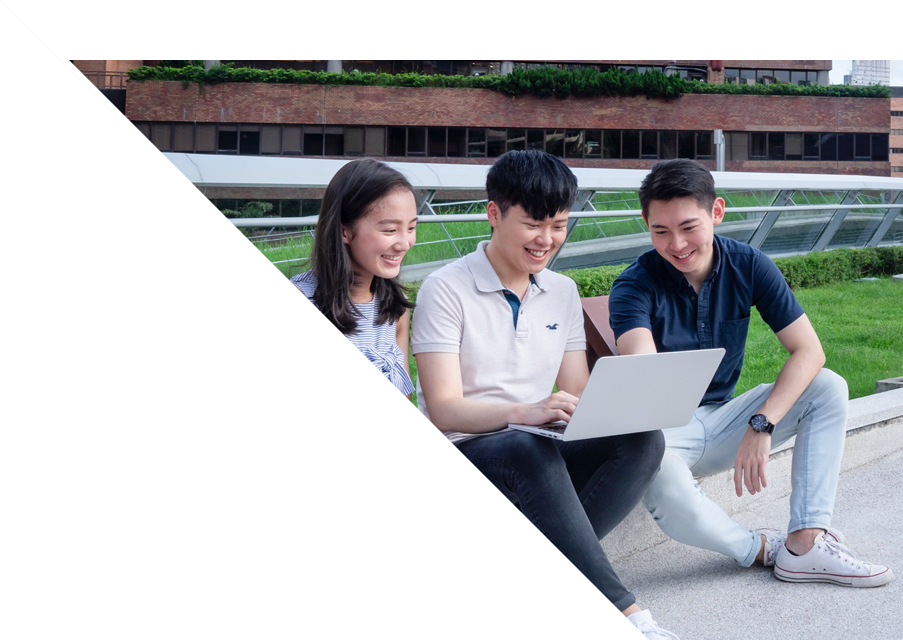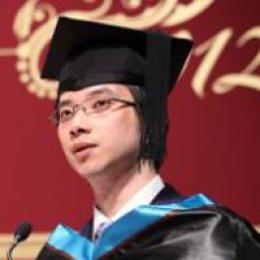Sept 2024 Entry
1 year (Full-time)
2 years (Part-time)
30
Subjects are mainly taught in Chinese (Putonghua supplemented by Cantonese). English sessions may also be offered.
What's New
Programme Aims
The MA in Chinese Culture is a student-oriented programme with advanced courses of study focusing on Chinese culture. It offers students a methodological foundation for studying Chinese culture as well as a wide range of courses in different areas of Chinese culture to address their needs and interests and to maximise the benefits of their learning.
The programme aims to:
-
develop and extend students’ knowledge of key aspects of Chinese culture;
-
deepen students’ understanding of Chinese culture;
-
enhance students’ appreciation of Chinese culture;
-
broaden students’ knowledge of cultural heritage and its management in China; and
-
build a foundation for students’ further research on Chinese culture and teaching Chinese culture in schools.
Characteristics
Upon the successful completion of the programme, students should possess the following:
(1) Professional competence equipping them to become specialists in/leaders of a discipline/profession.
They should be able to:
-
appreciate the relevance of Chinese thought and values to the modern world in their daily lives;
-
demonstrate a sound knowledge of the roots and development of Chinese culture;
-
express a deep understanding and appreciation of the forms and spirit of Chinese culture; and
-
understand the importance of cultural heritage;
(2) Strategic thinking
They should:
-
be able to integrate discrete domains of knowledge for analysis and to formulate actions to solve problems, conduct independent research and think holistically;
(3) Lifelong learning capability
They should:
-
develop an interest in Chinese culture and gain the skills needed to explore the complexity of Chinese culture on their own.
This multidisciplinary programme develops and extends students’ knowledge of key aspects of Chinese culture, empowering graduates to pursue further study and excel in workplaces where a broad, humanistic understanding of China is prized. With China’s increasing importance, graduates can expect to apply the knowledge and skills acquired in the programme when making contributions to the government, economy and society of Hong Kong, the rest of China and the world.
Programme Structure
For the MA Non-Dissertation Option
Total: 10 taught subjects (30 credits)
-
2 Compulsory Subjects (6 credits)
-
1 Elective Subject from Core Area 1 Society and Culture (3 credits)
-
1 Elective Subject from Core Area 2 Religions and Thought (3 credits)
-
1 Elective Subject from Core Area 3 Literature and Arts (3 credits)
-
5 Elective Subjects from any area (15 credits)
For the MA Dissertation Option
Total: 7 taught subjects (21 credits) + MA Dissertation (9 credits)
-
2 Compulsory Subjects (6 credits)
-
1 Elective Subject from Core Area 1 Society and Culture (3 credits)
-
1 Elective Subject from Core Area 2 Religions and Thought (3 credits)
-
1 Elective Subject from Core Area 3 Literature and Arts (3 credits)
-
2 Elective Subjects from any area (6 credits)
-
MA Dissertation (9 credits)
Students can choose to graduate from the programme with an exit award - the Postgraduate Diploma (PgD) - by completing 18 credits:
Total: 6 taught subjects (18 credits)
-
2 Compulsory Subjects (6 credits)
-
4 Elective Subjects from any area (12 credits)
Core Areas of Study
Compulsory Subjects
-
Introduction to the Study of Chinese Culture (中國文化研究入門)
-
Studying Chinese Culture through Fieldtrips (中華文化考察)
Elective Subjects
Core Area 1: Society and Culture (核心範圍一:社會與文化)
-
Chinese Dietary Culture (中國飲食文化)
-
Chinese Customs and Etiquettes (中國風俗與禮儀)
-
Underground Societies in China (中國地下社會)
-
Folk Beliefs and Occult Science (民間信仰與術數方技)
-
Gender and Sexuality in Modern China (性別與近現代中國)
-
Chinese Films and Society (中國電影與社會)
-
Special Topic on Society and Culture (社會與文化專題研究)
-
Modern China’s Intra-Asian Political and Cultural Relations (近代中國與亞洲鄰國的政治及文化關係)
-
China’s Frontiers: Society, History & Culture (中國的邊疆: 社會、歷史與文化)
-
The Culture of Work in Contemporary China: From Maoist China to Reform and Opening-Up to the Age of Artificial Intelligence (當代中國的工作文化:從毛時代到改革開放到人工智慧的時代)
-
Society and Culture of Civil Service Examinations in Premodern China (中國科舉社會與文化)
Core Area 2: Religions and Thought (核心範圍二:宗教與思想)
-
Government and Education in Confucianism (儒家思想與中國政教)
-
Buddhism and Chinese Culture (佛教與中國文化)
-
Daoism and Chinese Culture (道教與中國文化)
-
Islam, Christianity and Chinese Culture (伊斯蘭教、基督教與中國文化)
-
Special Topic on Religions and Thought (宗教與思想專題研究)
-
Early Chinese Thought, Belief, and Technology (早期中國的思想、信仰及科技)
-
Song-Ming Confucianism (宋明理學)
-
The Making of Chinese Martial Arts Tradition (中國武術傳統之塑造)
Core Area 3: Literature and Arts (核心範圍三:文學與藝術)
-
Expression and Application of Chinese Writing (中國文字的表達與應用)
-
Appreciation of Chinese Classical Rhymed Writings (中國韻文欣賞)
-
Appreciation of Chinese Calligraphy and Paintings (中國書畫藝術欣賞)
-
Chinese Traditional Theatre and Performing Arts (中國傳統舞臺及說唱藝術)
-
Special Topic on Literature and Arts (文學與藝術專題研究)
-
Classical Chinese Fiction (中國古典小說)
-
Modern Chinese Literature (中國近現代文學)
-
Music and Language in Traditional Chinese Poetry and Drama (中國傳統詞曲中的語言與音樂欣賞)
- The Book of Poetry and Chinese Culture (《詩經》與中國文化)
- A History of Chinese Calligraphy and Painting (中國書畫藝術史)
Other Free Elective Subjects and Thesis (其他自由選修課及論文)
-
Businessmen and Business Culture in China (中國商人與商業文化)
-
Special Topic on Business, Tourism and Cultural Management (商業、旅遊與文化管理專題研究)
-
Great Works on Chinese Geography and Travel (中國地理及旅遊名著)
-
Chinese Regional Culture (中國著名地區文化)
-
Selected Topics and Readings in Chinese Culture (中國名著與文化專題研究)
-
MA Dissertation (文學碩士論文) (9 credits)
The programme structure listed above is subject to revision/change without prior notice.
30
Dr Tsui Kai Hin Brian
BA(Hons), MA, MPhil, PhD
-
A Bachelor's degree (in any discipline) from an institution that is recognised by PolyU.
-
If you are not a native speaker of English, and your Bachelor's degree or equivalent qualification is awarded by institutions where the medium of instruction is not English, you are expected to fulfil the University’s minimum English language requirement for admission purpose. Please refer to the "Admission Requirements" section for details.
-
Non-Chinese native speaking students need a good knowledge of the Chinese language.
Individual cases will be considered on their own merit by the departments concerned*. Applicants may be required to attend interviews or tests to further demonstrate their language proficiency.
* For applicants with qualifications obtained in Taiwan, a pass in the High-Intermediate level or above in the GEPT may be considered as having fulfilled the English language requirements. Please contact the Academic Registry at ar.tpg@polyu.edu.hk for details.
If you have any questions or require further information, please contact:
Programme Leader
Dr Tsui Kai Hin Brian (徐啟軒博士)
Tel: (852) 3400 8951
Email: brian.kh.tsui@polyu.edu.hk
Executive Officer
Ms Lucy Wong (黃露斯女士)
Tel: (852) 3400 8927
Email: lucy.wong@polyu.edu.hk
The Department of Chinese Culture
Tel: (852) 3400 8946
Fax: (852) 2334 3747
Email: ma.chinese.culture@polyu.edu.hk
Website: www.polyu.edu.hk/cc/
Address: HJ631, The Hong Kong Polytechnic University, Hung Hom, Kowloon, Hong Kong
-
Courses are held in the daytime or evening on weekdays and/or in the daytime on Saturdays.
-
Some courses include fieldtrips at weekends.
6 for local students
12 for non-local students
HK$5,500 per credit for local students
HK$5,900 per credit for non-local students
Required
Optional
Optional
Other supporting documents (e.g. reference letter) are optional.






